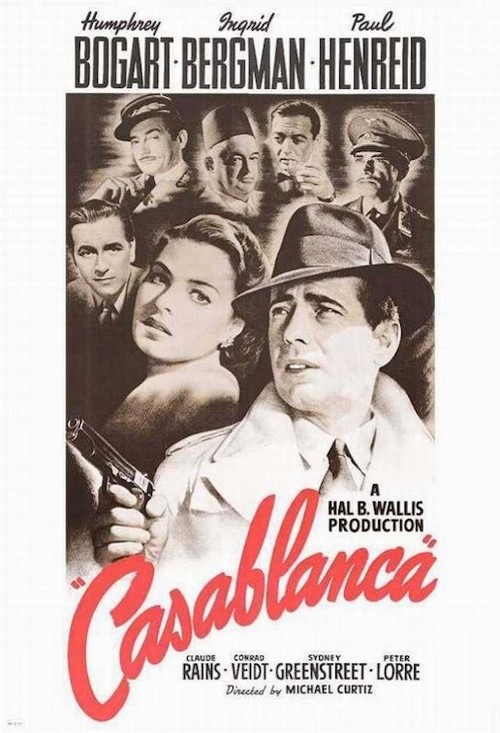Jewish roots of 'Casablanca'
On Feb. 14 each year, many Americans view screenings of “Casablanca.” As time goes by, the Jewish influences on the Oscar-winning 1940s romantic film become more apparent.
Jews involved in the production of “Casablanca” include Murray Burnett, the author of the play on which the movie was based, director Michael Curtiz, screenwriters Philip and Julius Epstein and Howard Koch, producer Hal Wallis, composer Max Steiner, and actor Peter Lorre (born László Löwenstein).
“Burnett wrote the play before World War II began,” James Pontuso, author of the book “Political Philosophy Comes to Rick’s: Casablanca and American Civic Culture,” tells JNS.org. “This was a warning to Americans about what was happening. America was an isolationist country. We didn’t want to get involved in Europe, especially after World War I. In October 1941, in response to the Nazi invasion of France, the United States House of Representatives came within one vote of disbanding the U.S. army. That was our response to World War II. Burnett was warning people. He was saying, ‘Look, you Americans need to get ready. This guy (Hitler) is after you too.’”
According to Hollywood journalist and film historian Aljean Harmetz, Burnett as a 27-year-old English teacher at a New York vocational high school went to German-occupied Vienna in the summer of 1938 to help Jewish relatives smuggle out money. He returned to the United States with the idea for an anti-Nazi play in which an embittered saloonkeeper helps a crusading Czech newspaper editor escape from Casablanca, Morocco, with the woman the saloonkeeper loves.
When Burnett could not find a Broadway producer for ”Everybody Comes to Rick’s,” which he co-wrote with Joan Alison, “the play was sold to Warner Brothers for $20,000 and the title was changed to ‘Casablanca,’” Harmetz wrote in the New York Times.
Starring Humphrey Bogart and Ingrid Bergman, “Casablanca” won the Oscar for Best Picture in 1943, and Curtiz won the Oscar for best director.

 64.0°,
Mostly Cloudy
64.0°,
Mostly Cloudy 




